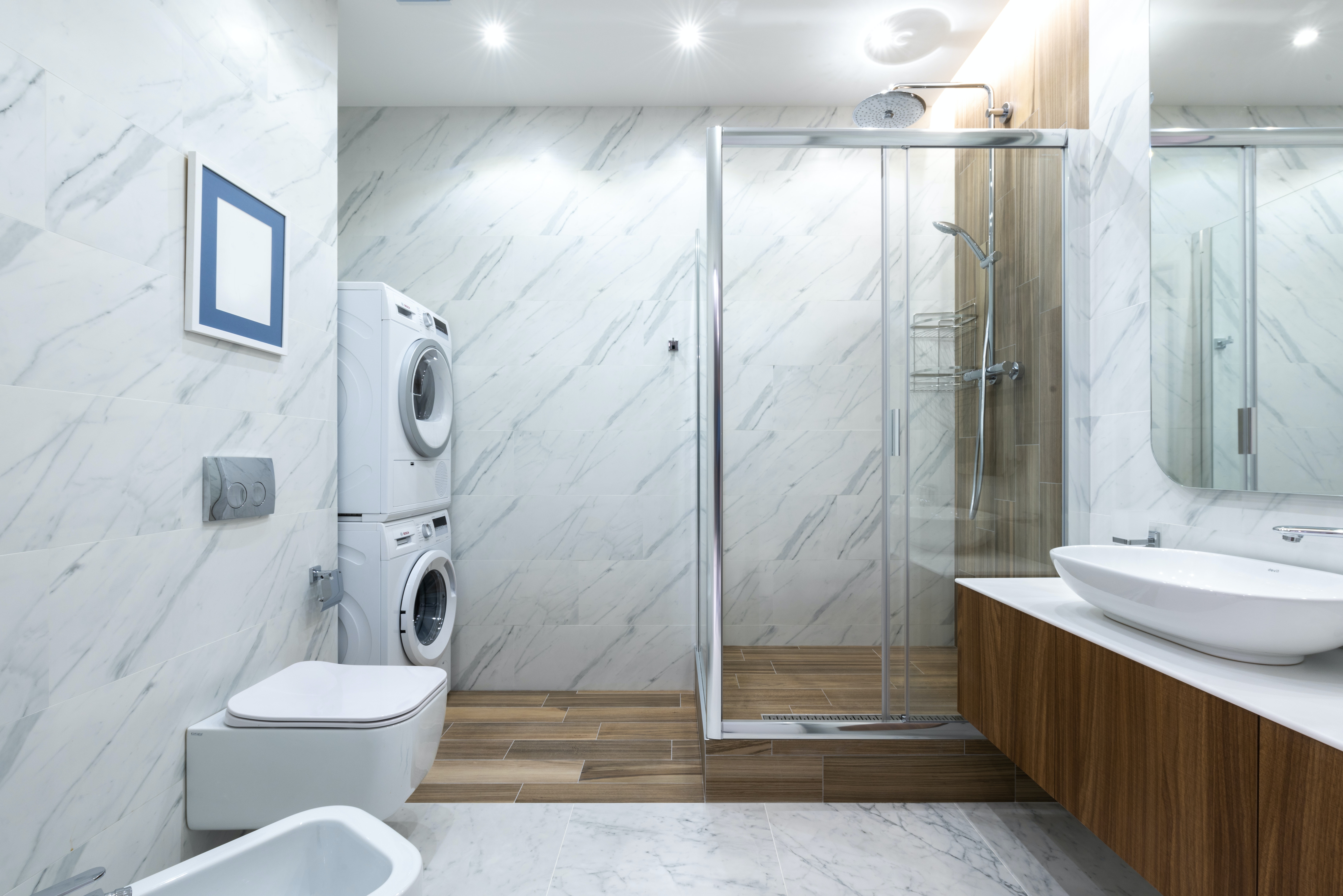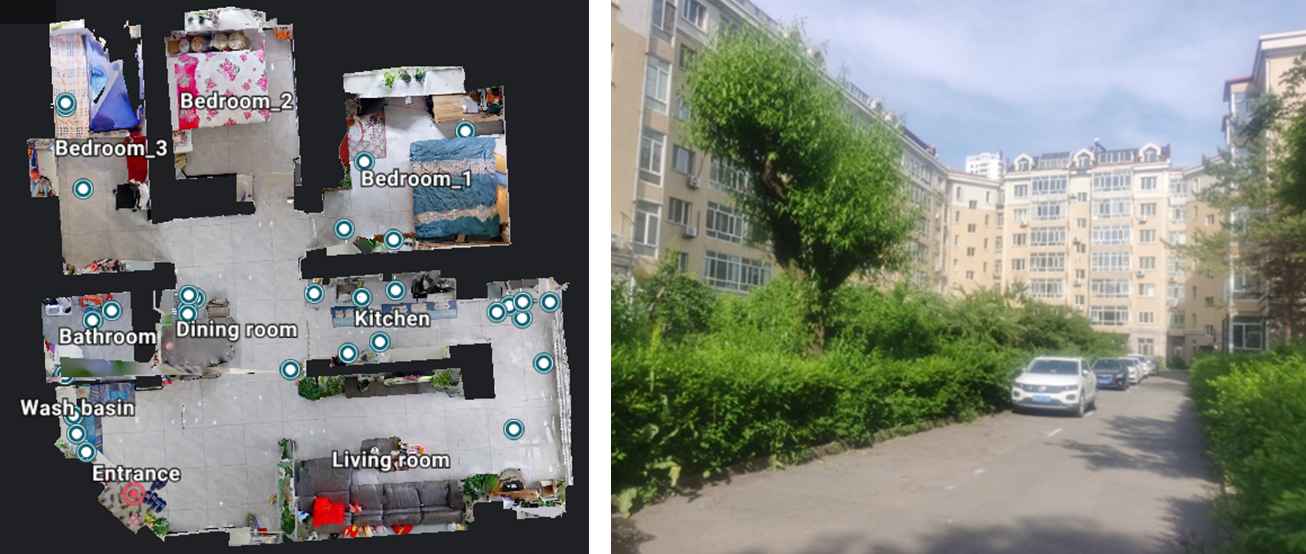[China: World Residence Tour] How do Chinese households use their balcony?
- Release date: Nov 26, 2020
- Update date: Sep 05, 2025
- 15771 Views
For those interested in learning more about daily life in China, please also check out this article.
2025 Edition|What is Real Life in China? Daily Habits and Current Trends Marketers Should Know
・Urban Housing Conditions: Surprisingly Not That Spacious? Floor Plans and Features
・Ways to Maximize Space Utilization
・Refrigerators in the Living Room? And Entranceways: Different Approaches Compared to Japan
・Chinese Households Focusing on Indoor Air Quality
etc.

Is the balcony not open to private areas?
The Chinese make good use of their balconies. Unlike in Japan, most balconies in China are enclosed balconies and they are also part of the room, surrounded by windows. In Japanese condominiums/apartments, the balcony is a common element, an outside open space with no windows. Not considered as a dwelling floor area, it is strictly prohibited to renovate or rebuild the balcony without permission. Japanese people use their balconies for drying clothes and storing the outdoor unit of the air conditioner. Also, there are rules such as not leaving anything on the balcony that cannot be easily moved, or not leaving luggage that can block the escape ladder. The Japanese people generally accept these rules. On the other hand, the situation is totally different in China. In China, the balcony is not a common element, but a private space that is also considered as a dwelling floor area. Therefore, it is totally up to the owner to decide how to use it. In addition, most balconies are not open spaces like in Japan, but rather indoor spaces.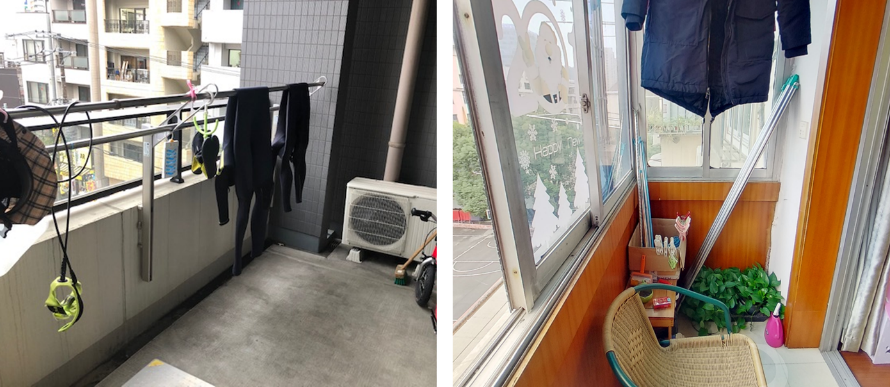
Typical balcony of an apartment building in Japan (left) and China (right)
(Source:Consumer database (Consumer Life Panorama))
What is Consumer Life Panorama?
This is a website-type database that has accumulated visual data on more than 1,000 sei-katsu-sha from 18 countries around the world. The database includes many 3D models of living environments and 2D data of items owned by each sei-katsu-sha, and is useful for understanding overseas sei-katsu-sha, which is difficult to grasp using only letters and numbers.
Using visual data such as those cited in this column,
Compare the differences in the attributes of overseas consumers
To get a realistic understanding of the actual usage of each category
To understand the overall lifestyle of target consumers
etc., can be utilized as a “no-go” home visit survey.
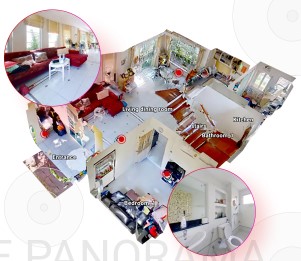
In fact, if you look at Chinese households with "My Home" registered on INTAGE's Consumer Life Panorama shows 5 out of 9 households have balconies whose type is enclosed balconies. (November 2020)
So why do Chinese people insist on having enclosed balconies? In fact, there is a difference in the laws and regulations governing balconies between China and Japan.
On the other hand, in China, the "Code for Calculating the Building Area of the Construction Process" (hereinafter referred to as "the Code"), which describes how to include balconies, was reviewed once in 2014, and according to the old "Code" before 2014, whether the balcony is outside or inside, in most cases (when there is a balcony outside the main building), it is stated that 1/2 of the actual area should be added to the building area.
Therefore, for dwellings built before 2014, if the balcony is enclosed, the floor area can be a bit larger than the area stated on paper. At the same time, from a home buyer's point of view, it looks like the half of the balcony area is a bargain as if it were given for free. Since the per capita housing building area in China's urban areas is not that large, turning balconies into indoor space is beneficial to consumers because it increases the amount of available space. As for enclosed balconies, "the Code" in 2014 had revised the area from 1/2 area to full area, there are still many dwellings with enclosed balconies because of the large number of condominiums built according to the old "Code" before 2014.It's not open and can be modified?
In Japan, newly built condominiums are usually delivered with completed interiors and the buyer can move in right away. However, in China, condominiums are generally sold before completion and delivered without interiors, which means the buyer cannot live in there immediately. In other words, the buyer can freely modify the interior or structure as they like. In China, many households modify the balcony to connect it to other spaces, and mostly they follow the two patterns below.
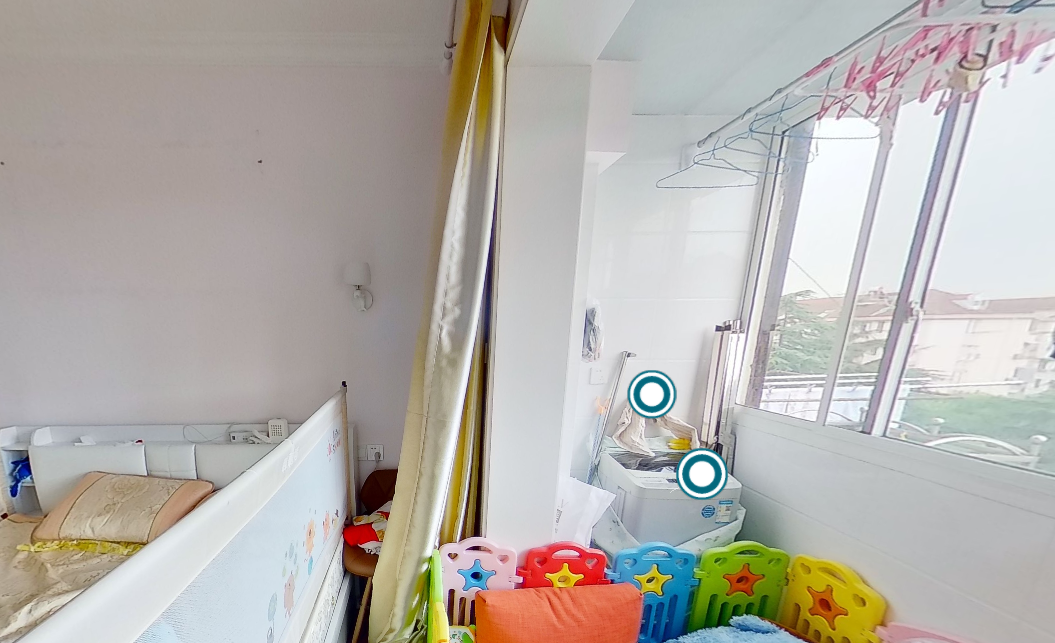
Balcony with integrated bedroom and washing machine
(Source:Consumer database (Consumer Life Panorama))
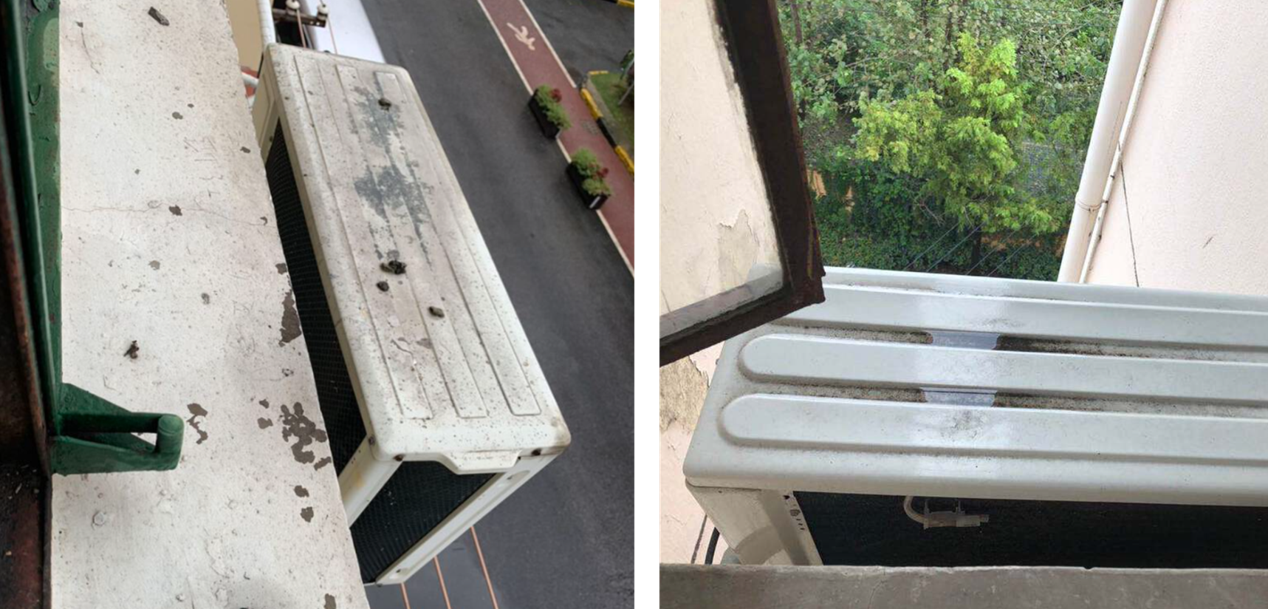
Outdoor unit attached to an exterior wall (Source:Consumer database (Consumer Life Panorama))
-

Author profile
Mr. Yang Yan
A Chinese researcher living in Japan, sharing the life styles of consumers overseas, mainly in China. At his parents' house, the washing machine is installed on the balcony, and he finds it easier to wash and dry clothes in the same space.
-

Editor profile
Mr. Yusuke Tatsuda
He is in charge of creating the Global Market Surfer website. He got visited his friend's house who had a vegetable garden on the balcony, and under the situation of COVID-19 his longing for a private vegetable garden has been grow.
 Global Market Surfer
Global Market Surfer CLP
CLP

